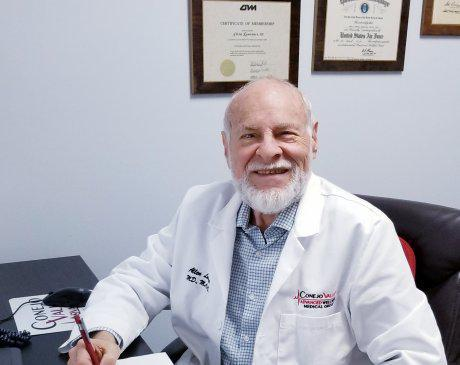- 21103 Vanowen St Woodland Hills, CA 91303 | Call us today!
- 310-879-9266
Does HRT increase risk of breast cancer

Hormone Replacement Therapy (HRT) is a treatment that involves taking hormones to replace the female hormones that women over 45 to 55 years of age, no longer produce in sufficient amounts to supply their bodily needs.
In most women, this usually means a loss of both estrogen, particularly estradiol, and progesterone. HRT is commonly used to relieve some or all of the many signs and symptoms create by the loss of production of these hormones, commonly called menopause, such as hot flashes, night sweats, and vaginal dryness.
From the very begging of the use of HRT, there has been considerable research and debate regarding the association between HRT and the risk of breast cancer. Several studies have shown that long-term use of estrogen-progestin therapy (also known as EPT), which involves taking synthetic or non-bioidentical (horse) estrogen and progestin (synthetic progesterone) hormones, is well known to increase the risk of certain types of breast cancer. The Women’s Health Initiative (WHI) study, conducted in the early 2000’s, found that women using EPT had an increased risk of breast cancer compared to those not using any hormones at all. Studies from Europe on the other hand have been demonstrating that bio-identical female hormones (estradiol and progesterone) can and often do actually significantly lower the risk of breast cancer.

On the other hand, when estrogen-only therapy (ET), often used in women who have undergone a hysterectomy (removal of the woman’s uterus) or hysterectomy unilateral or bilateral oophorectomy, (removal of the woman’s uterus and one or both ovaries), does not appear to significantly increase these women’s the risk of breast cancer. In fact, it may have a modest protective effect on breast cancer risk, particularly when started and used in the very early years, just before or just after the onset of her menopause.
Most important is that the potential risks of breast cancer associated with HRT appears to vary greatly depending on factors such as the type of hormones (synthetic or bio-identical estrogen) used, the duration of treatment, the age at initiation, and individual risk factors (family history, lifestyle, genetics, whether you use tobacco, smoke or not, genetic mutations, dosage, use of synthetic or bio-identical progesterone) for breast cancer. It is always recommended to consult with a healthcare provider with many years of experience, such as Advanced Wellness Medical, who can assess your personal medical history, your lifestyle and provide guidance based on the latest research and medical guidelines.
If you have concerns about HRT and breast cancer, Advanced Wellness Medical can help you weigh the potential risks and benefits based on your specific situation and discuss alternative treatment options which may be safely available to you. Regular breast cancer screenings, physician breast exam, learning self-breast exams, regular pap smears, pelvic exams, breast ultrasound, mammograms, assessing your genetic make up and your hormone levels before, during and after, the onset of menopause and each play very important roles in prevention, as well as early detection, of breast cancer and hence, can help you protect you. Advanced Wellness Medical can help guide and monitor you for potential changes while on HRT or any other hormone-related therapies.

Article by Dr. Allen Lawrence, M.D.
If you have questions call me at 844-222-577
or write me at info@AdvancedWellnessMedical.com




